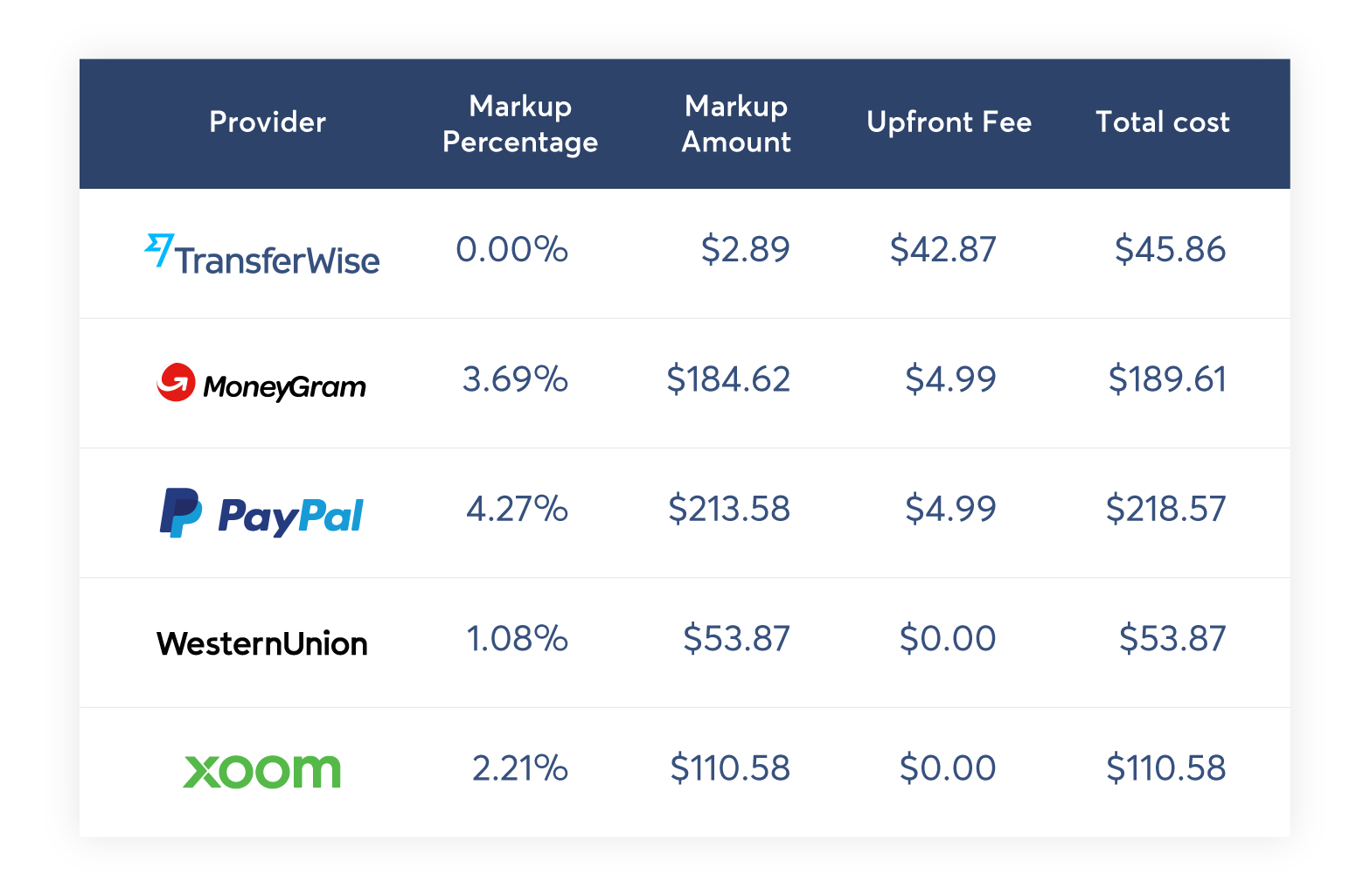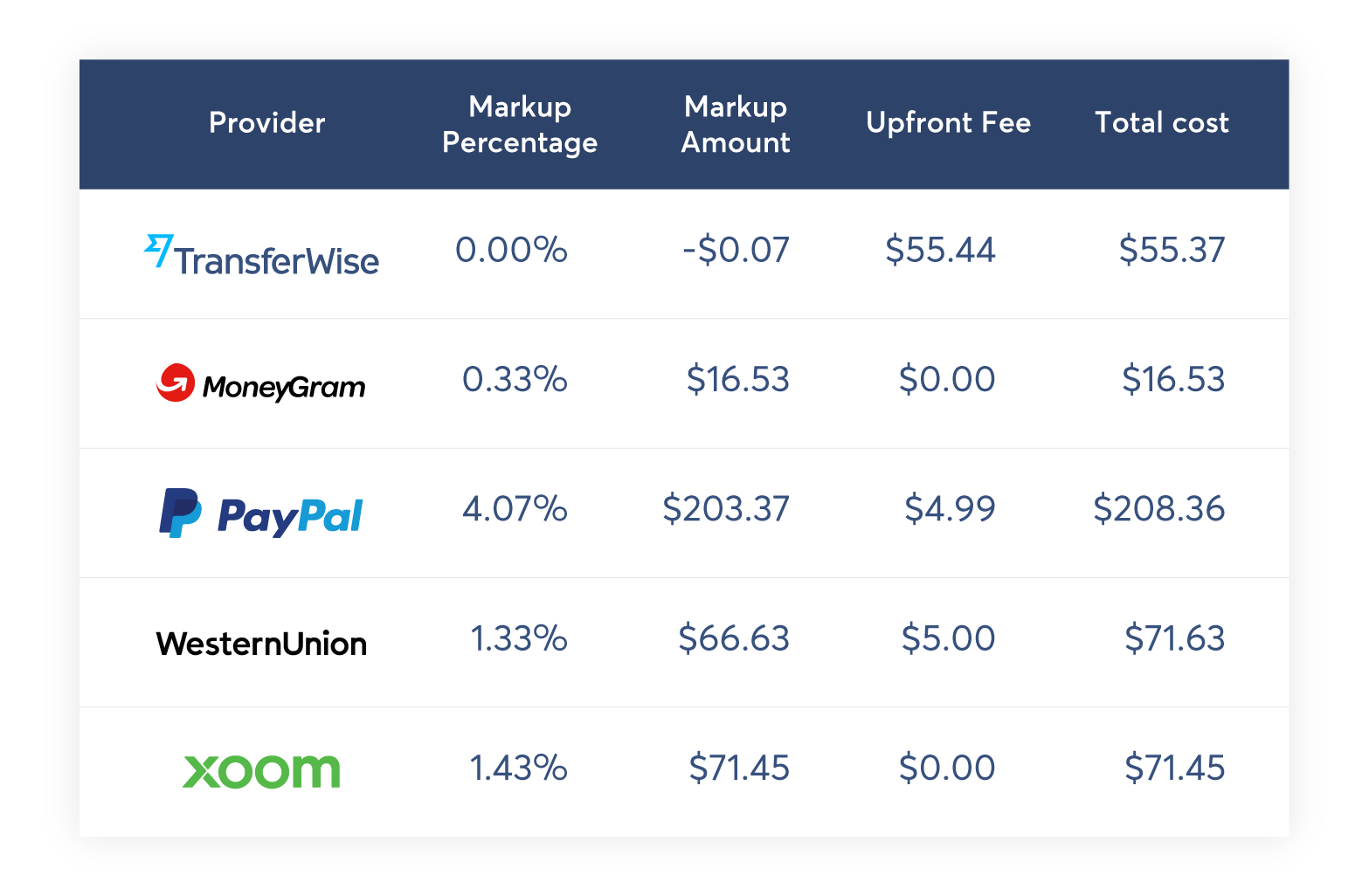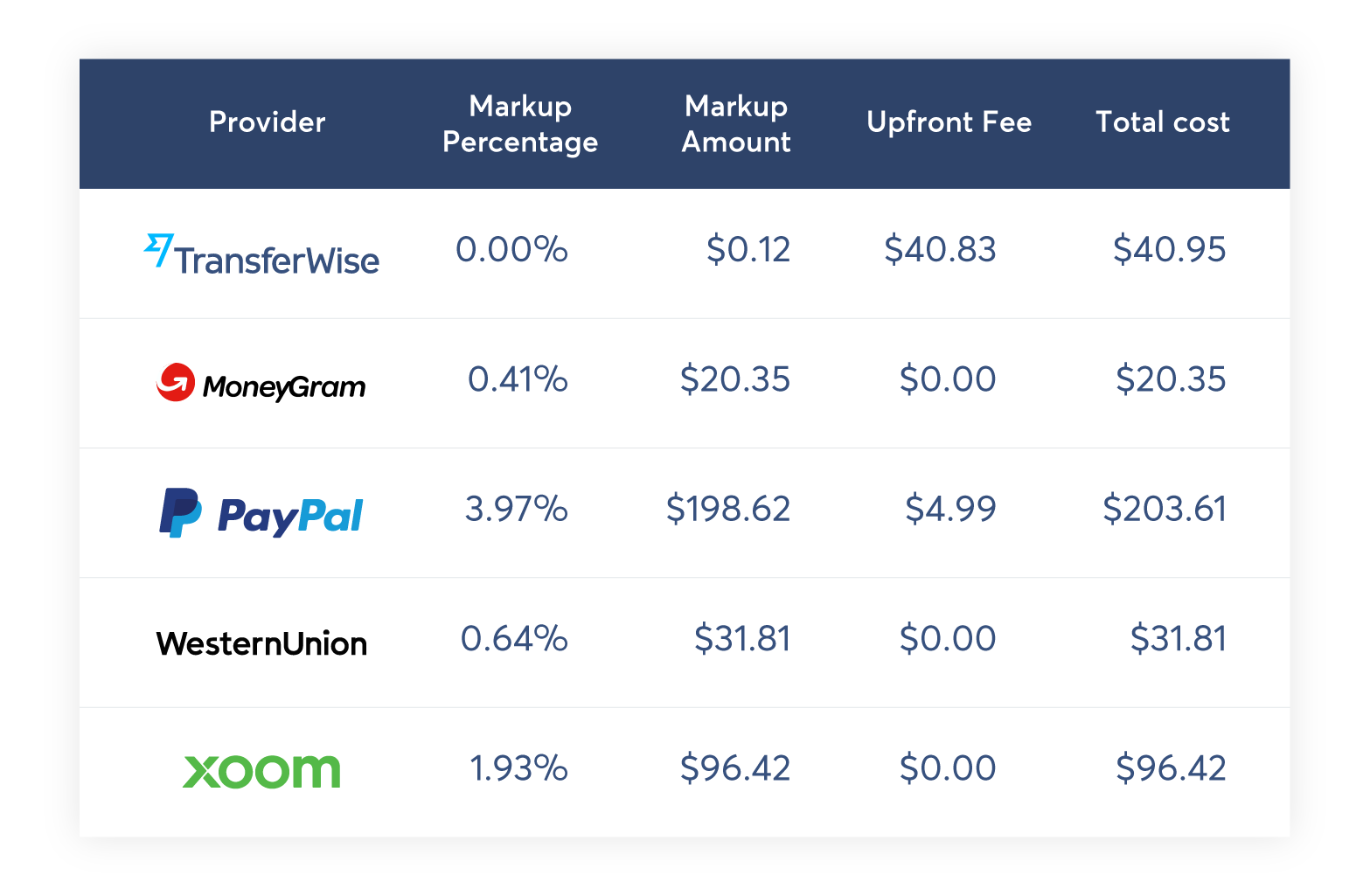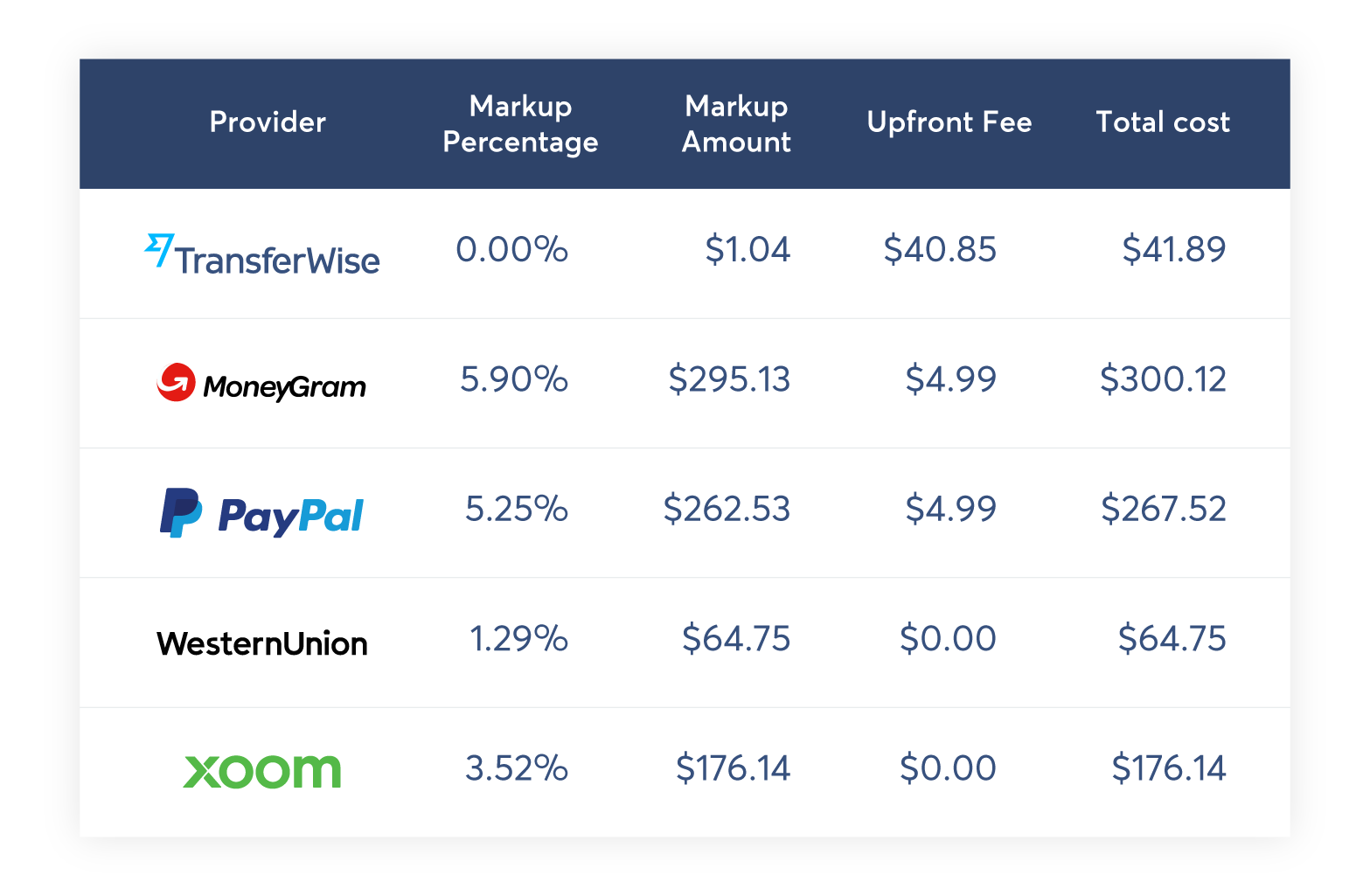#StopTheRipOff

Heads up, America.
Every year, we lose almost $9 billion sending money abroad.
When we send money internationally, or use our cards overseas, banks often sneak extra charges into the exchange rates they give us. Most of us never notice, which is the whole point. That’s how they rip us off for an extra $8.7 billion a year.
If you didn’t know, now you know.
Only 9% of Americans realize that the true cost of sending or spending money abroad includes upfront fees plus any exchange rate markup.
Banks and other providers might say they charge low fees — or even no fees — for international transactions. But they tend to be quieter about that markup.

The (hidden) rate ripoff.
Travelers lose $2.1 billion
When you go shopping abroad, your card company might give you a bad exchange rate. Do you check how much you actually get charged in the end?
Businesses lose $2.3 billion
Do you pay suppliers or employees overseas? Do you receive payments from abroad? Are you getting the right rate in these transactions?
Senders lose $2.2 billion
When you send money back home, or anywhere abroad, you’re probably not getting the right rate. And it’s not wrong in your favor.
No other industry works this way.
We shop around for airline tickets. Gas. Milk. Those prices have to be transparent, which lets us compare different providers and make smart decisions with our money. <br /> But when banks aren’t clear about the exchange rates they use, we’re in the dark. We can’t shop around. We lose big.

Help us #StopTheRipOff
Sign our petition to Congress to stop the hidden fees. Share it with your friends. We’ll fight the rest of the way.
Let’s take back that $8.7 billion next year.




